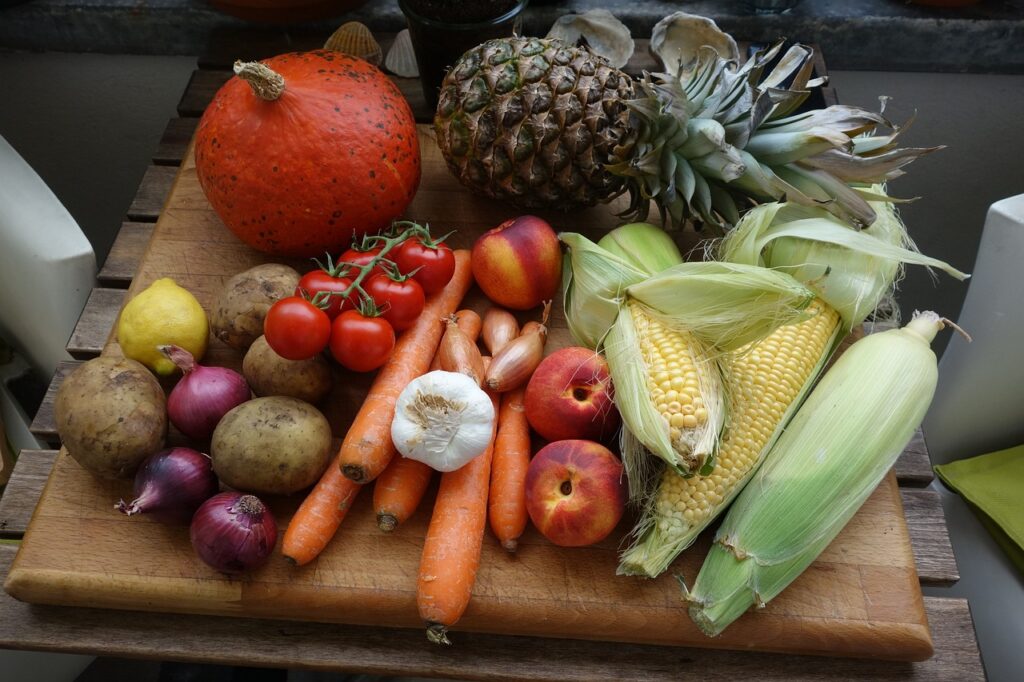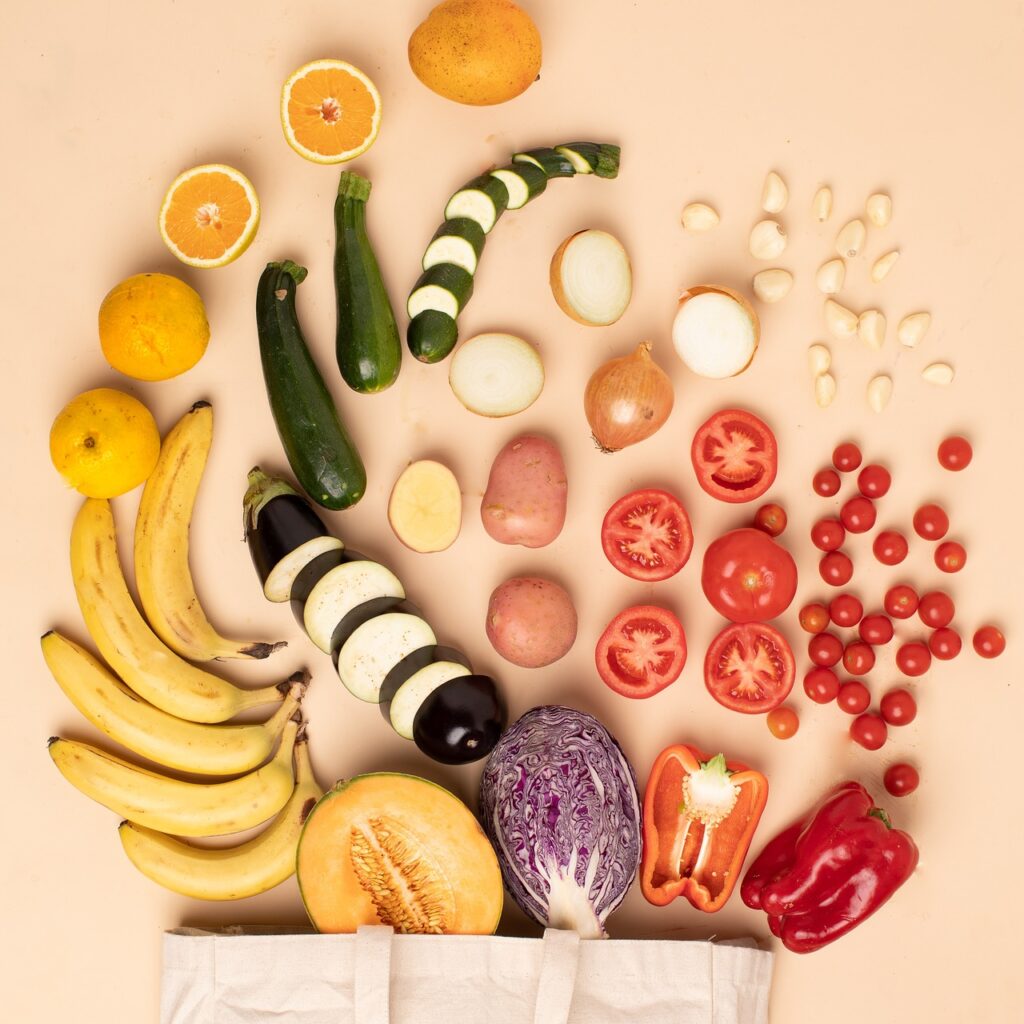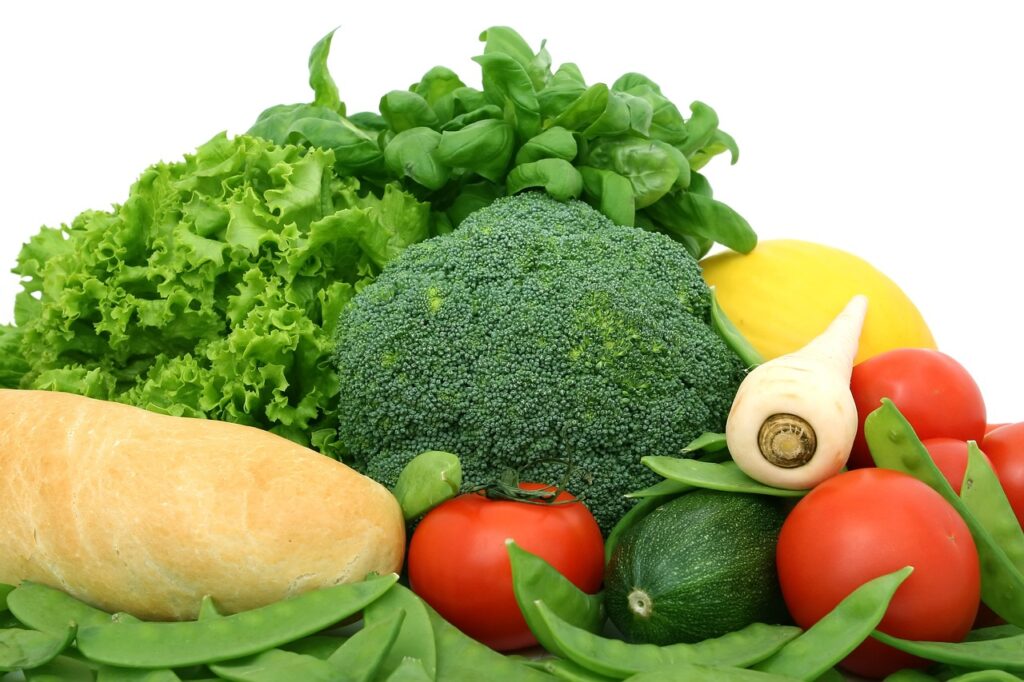Vegetables are the cornerstone of a healthy diet, packed with essential nutrients that support overall well-being. From providing vital vitamins and minerals to offering unique compounds that fight disease, vegetables play a crucial role in maintaining a balanced lifestyle. Let’s explore why adding more vegetables to your plate can transform your health and vitality.
1. Nutrient Powerhouses
Vegetables are rich in vitamins like A, C, and K, and minerals such as potassium and magnesium. These nutrients are crucial for maintaining energy levels, supporting bone health, and ensuring proper immune function. For example, leafy greens like spinach and kale are excellent sources of iron and calcium, while bright-colored vegetables like bell peppers and carrots are loaded with antioxidants.

2. A Natural Source of Fiber
Fiber is key to a healthy digestive system, and vegetables are among the best sources. Consuming fiber-rich vegetables like broccoli, Brussels sprouts, and sweet potatoes helps regulate bowel movements, prevents constipation, and promotes the growth of beneficial gut bacteria. Additionally, fiber helps control blood sugar levels and lowers cholesterol, reducing the risk of chronic diseases.

3. Low in Calories, High in Nutrients
Vegetables are naturally low in calories but high in nutrients, making them perfect for maintaining a healthy weight. By replacing calorie-dense, processed foods with vegetables, you can enjoy satisfying meals that leave you feeling full without the excess calories. This balance is particularly helpful for weight management and overall well-being.

4. Disease-Fighting Properties
Vegetables contain powerful antioxidants and phytochemicals that help combat chronic diseases. For instance, cruciferous vegetables like cauliflower and cabbage are known to reduce inflammation and protect against certain types of cancer. Additionally, the high levels of potassium in veggies like squash and zucchini can help regulate blood pressure, reducing the risk of heart disease.

5. Boosting Mental Health
Research has shown a link between veggies consumption and improved mental health. The vitamins and minerals in veggies contribute to better brain function, reducing the risk of depression and cognitive decline. veggies like spinach and asparagus, which are rich in folate, play a role in producing serotonin, the “feel-good” hormone.

6. Versatility in Cooking
One of the best things about veggies is their versatility. They can be steamed, roasted, sautéed, or eaten raw, making them a convenient and delicious addition to any meal. From a simple salad to a hearty vegetable stew, there are endless ways to enjoy these nutrient-packed foods.

Conclusion
Incorporating more veggies into your diet is one of the simplest and most effective ways to achieve a balanced lifestyle. Their nutrient density, disease-fighting properties, and versatility make them indispensable for long-term health and vitality. Whether you’re aiming to boost your energy, manage your weight, or improve your overall well-being, veggies are the ultimate allies on your journey to a healthier life.
So, next time you plan a meal, remember to fill half your plate with these colorful, nutrient-packed wonders. Your body—and mind—will thank you!
Why are vegetables important for a balanced diet?
Vegetables are essential because they provide vital nutrients like vitamins, minerals, and fiber, which support overall health. They help boost immunity, maintain healthy digestion, and reduce the risk of chronic diseases.
How do veggies help in weight management?
Vegetables are low in calories and high in water and fiber content, which makes them filling without adding extra calories. Including more vegetables in your meals can help control hunger and prevent overeating.
What are the best veggies for overall health?
Some of the healthiest vegetables include:
Spinach: High in iron, calcium, and vitamins A and C.
Broccoli: Packed with fiber, antioxidants, and vitamin K.
Sweet Potatoes: Rich in beta-carotene and potassium.
Carrots: Excellent for eye health due to high vitamin A content.
Bell Peppers: Full of vitamin C and antioxidants.
How many servings of veggies should I eat daily?
The recommended intake varies by age and gender, but most adults should aim for at least 2.5 to 3 cups of veggies per day, according to dietary guidelines.
Can veggies help prevent diseases?
Yes, veggies are rich in antioxidants and phytochemicals that help reduce inflammation and combat chronic diseases like heart disease, diabetes, and certain types of cancer. For example:
Cruciferous veggies like cauliflower and kale may reduce cancer risk.
Leafy greens support heart health.
Tomatoes and red vegetables help protect against prostate and breast cancer.
Are raw or cooked vegetables better?
Both have their benefits. Raw veggies retain most of their nutrients, while cooking can enhance the absorption of some compounds (e.g., lycopene in tomatoes). A mix of raw and cooked veggies ensures you get the best of both worlds.
How can I add more veggies to my diet?
Add veggies to soups, stews, and casseroles.
Include a salad with your meals.
Snack on raw veggies like carrots or cucumber with hummus.
Blend leafy greens like spinach into smoothies.
Swap refined carbs like rice with vegetable alternatives like cauliflower rice or zucchini noodles.
Can frozen or canned veggies be as healthy as fresh ones?
Yes, frozen and canned veggies can be healthy alternatives when fresh options aren’t available. Choose those without added salt, sugar, or preservatives to maintain their nutritional value.
Are all veggies equally healthy?
While all veggies provide nutrients, some are more nutrient-dense than others. Dark leafy greens, cruciferous vegetables, and brightly colored veggies often contain higher levels of vitamins, minerals, and antioxidants.
Can I eat too many vegetables?
Vegetables are generally safe, but eating excessive amounts of certain types (like cruciferous veggies) might cause minor issues like bloating. A varied veggies intake is key to balance.



Nice post. I was checking continuously this blog and I’m impressed! Extremely helpful information specially the last part 🙂 I care for such info a lot. I was seeking this particular info for a long time. Thank you and good luck.